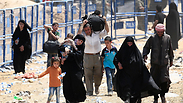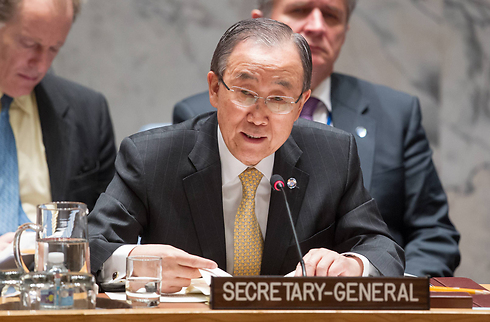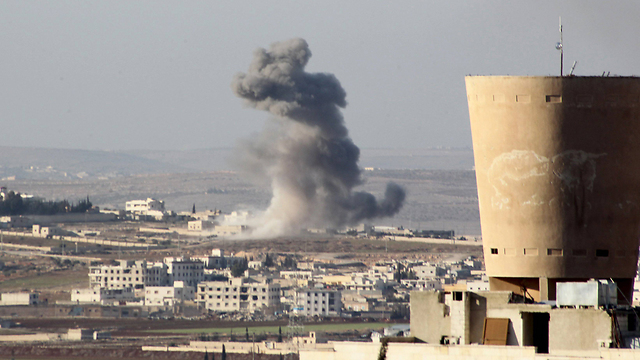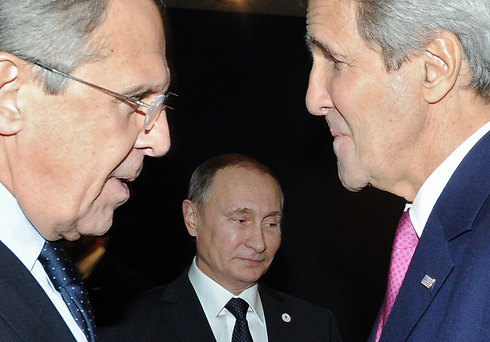
Over 2.5 million Syrian refugees have already crossed the border into Turkey.
Photo: AP
Donor nations pledged on Thursday to give billions of dollars in aid to Syrians as world leaders gathered for a conference to tackle the world's worst humanitarian crisis, with Turkey reporting a new exodus of tens of thousands fleeing air strikes.

With Syria's five-year-old civil war raging and another attempt at peace negotiations called off in Geneva after just a few days, the London conference aims to address the needs of some 6 million people displaced within Syria and more than 4 million refugees in other countries.
Underlining the desperate situation on the ground in Syria, Turkish Prime Minister Ahmet Davutoglu told the meeting that tens of thousands of Syrians were on the move towards his country to escape aerial bombardments on the city of Aleppo.
"Sixty to seventy thousand people in the camps in north Aleppo are moving towards Turkey. My mind is not now in London, but on our border - how to relocate these new people coming from Syria?" he said. "Three hundred thousand people living in Aleppo are ready to move towards Turkey."
Turkey is already hosting more than 2.5 million Syrian refugees. Jordan and Lebanon are the other countries bearing the brunt of the Syrian refugee exodus.
"Looking into the eyes of my people, and seeing the hardship and distress they carry, I must tell you we have reached our limit," said Jordan's King Abdullah.
Several speakers also made the point that while the situation of refugees was bad, that of Syrians trapped inside the country enduring bombardments, sieges and, in some places, starvation was far worse.
"With people reduced to eating grass and leaves and killing stray animals in order to survive on a day-to-day basis, that is something that should tear at the conscience of all civilized people and we all have a responsibility to respond to it," US Secretary of State John Kerry told the conference.
United Nations agencies are appealing for $7.73 billion to cope with the Syrian emergency this year, and countries in the region are asking for an additional $1.2 billion.
Conference co-hosts Britain, Norway and Germany were the first to announce their pledges, followed by the United States, the European Union, Japan and other nations.
Britain and Norway promised an extra $1.76 billion and $1.17 billion respectively by 2020, while Germany said it would give $2.57 billion by 2018. The United States said its contribution this fiscal year would be $890 million.
"Speak to us please"
The almost five-year-old conflict has killed an estimated 250,000 people and stoked the spread of Islamist militancy across the Middle East and North Africa.
For European nations, improving the humanitarian situation in Syria and neighboring countries is crucial to reducing incentives for Syrians to travel to Europe, where a large refugee influx has put many countries under severe strain.
A UN envoy halted his attempts to conduct Syrian peace talks on Wednesday after the Syrian army, backed by Russian air strikes, advanced against rebel forces north of Aleppo, choking opposition supply lines from Turkey to the city.
Kerry told the conference he had spoken to his Russian counterpart Sergey Lavrov about the situation.
"We have agreed that we are engaged in a discussion about how to implement the ceasefire specifically as well as some immediate, possible confidence-building steps to deliver humanitarian assistance," he said.
US and Russian support for opposing sides in the war, which has drawn in regional states and enabled the spread of Islamic State insurgents, means a local conflict has become an increasingly fraught global standoff.

UN Secretary-General Ban Ki-moon. "The coming days should be used to get back to the table." (Photo: AFP)
UN Secretary-General Ban Ki-moon said the first steps in the Geneva peace talks had been undermined by a lack of sufficient humanitarian access and by a sudden increase in aerial bombing and military activity on the ground.
"The coming days should be used to get back to the table, not to secure more gains on the battlefield," he said.
The conference will focus particularly on the need to provide an education for displaced Syrian children and job opportunities for adults, reflecting growing recognition that the fallout from the Syrian war will be very long-term.
Some Syrian civil society activists at the conference expressed concerns that donor nations were intensely focused on refugees because that was the aspect of the crisis affecting them, but were not doing enough for those inside Syria.
Rouba Mhaissen, founder of Syrian aid group SAWA, deplored that she was one of the only Syrian speakers at the event.
"Speak to us, please. Don't only speak only about us. Don't speak only in our names," Mhaissen said. "How many people in this room today are Syrian? Can I see a show of hands, please? One other person. Two other people. That's great," she added.


















